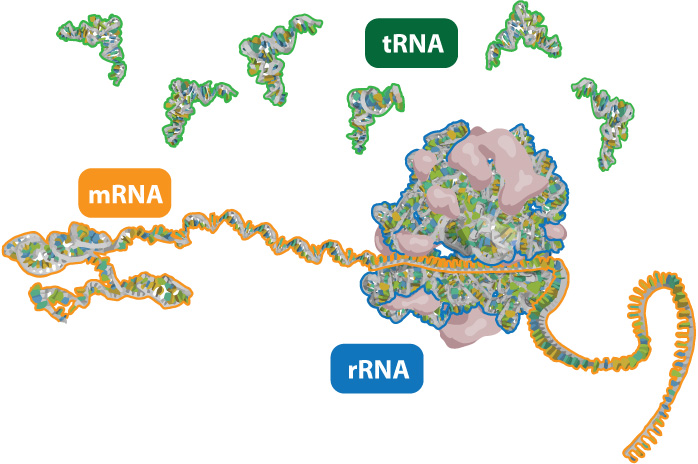RNA stands for ribonucleic acid and it has various important biological functions such as regulation and the expression of genes and in the coding and decoding. RNA is a nucleic acid, and its constituents the major macromolecules for life. RNA is assembled as a chain of nucleotides. In nature, it is often found as a single strand and is folded on to itself. Messenger RNA is used by the cellular organism for conveying the genetic information that directs to synthesize the proteins. The RNA genome is used by many viruses to encode their genetic information. Some RNA molecules have important roles in the cells to catalyze the biological reactions, to control the gene expression, and to sense and communicate the response to the cellular signals. One of the most important and active processes is the protein synthesis that is a universal function, in which the RNA molecules direct the synthesis of proteins on the structures of ribosomes.

RNA is essential for all known life forms. According to the statement of the central tenet of molecular biology, the genetic information in the cell flows from DNA to proteins, through RNA. Typically, RNA is a biopolymer having only one strand. RNA can form complexes with the ribonucleoproteins. RNA has many types, but three of its types are most commonly studied which is messenger RNA, transfer RNA, and ribosomal RNA. Usually, RNA expands the quantity of any given protein that can be made at a time from the one given gene thus it provides an important controlling point for the regulation that when and how the protein should be made.
In the past RNA was known to have only three roles in the cell, such as, as the photocopy of DNA, as the coupler between the building blocks of proteins, and the genetic code and as an important and integral structural component of the ribosomes. However, in recent years, it has been identified that it has broader roles. It can also act as an enzyme known as the ribozyme and speed up the chemical reactions. In the various clinically important viruses, it carries the viral genetic information. It regulates the various cellular processes ranging from the differentiation of the cell division and to the growth, and cell aging and the death of the cells. The regulation of RNA or the defects in the certain RNA has been implicated in various important human diseases such as strokes, cancers, and heart diseases.
